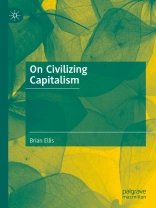This book shows how modern political, economic and moral theory, including our ideas of liberty and individualism, are trapped in 17th century notions of intuitive reasoning and not informed by modern scientific understanding. Brian Ellis starts with a re-appraisal of the founding of the United Nations and the political and economic policies of the post-war reconstruction period. He then shows how this period, despite its many faults, embodied a philosophy more closely embedded in scientific realism than dominant theories of either left or right today. He goes on to develop this philosophy, meticulously, demolishing theories of Rawls, Nozick and others along the way. The result is a philosophy that investigates how a society actually works, supports evidence-based economics and can better enable human beings to flourish. It is a philosophy that can also accommodate the historical differences between societies and their different, but parallel, development strategies over time.
Tabella dei contenuti
Chapter 1. Evolution and Structure.- Chapter 2. Realism in Social Theory.- Chapter 3. Social Morality.- Chapter 4. First Philosophy.- Chapter 5. Social Democracy and Social Progress.- Chapter 6. The Secular States.- Chapter 7. Eudaimonism: The Flourishing of Human Kind.- Chapter 8. Liberty.- Chapter 9. Rights.- Chapter 10. Individualism.- Chapter 11. Social Contracts.- Chapter 12. Humanistic Ethics.- Chapter 13. The New Welfare State.- Chapter 14. The New World.
Circa l’autore
Brian Ellis is a leading expert in the history and philosophy of science with wide-ranging expertise in political, ethical and economic philosophy, the philosophy of mind and action, logic and probability theory. He is Professor Emeritus in Philosophy, at La Trobe University, and former Professorial fellow, University of Melbourne.












